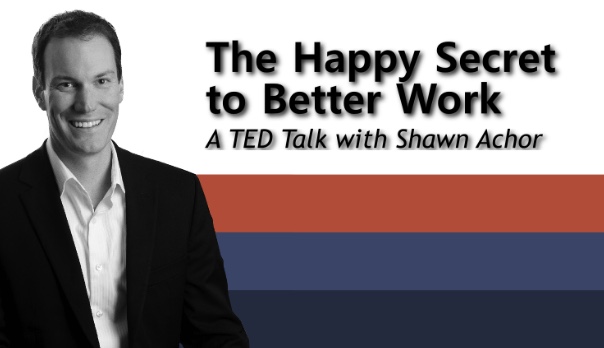The Positive Thinking Formula
November 17, 2019
Success isn’t always easy to find. Shawn Achor, an American author, cites that most people in our fast paced society believe that working hard will lead to happiness. But what if everything that is preconceived about the ideas of success and happiness were false? What if success is actually stemmed from happiness and not the other way around?
Achor speaks about this topic in his TedTalk, “The Happy Secret to Better Work”, which is the 14th most popular TedTalk of all time with around 18.5 millions views. In his TedTalk, Achor shines light on what it truly means to be successful through positive thinking.
He starts with a revelation that he discovered as a seven year-old: our brains can be powerful when we use positive thinking.
Once, when playing with his five year-old sister, he watched her fall from the top of a bunk bed and about to cry out in pain. Instead of trying to console her, Achor told her that the reason she landed that way because she was a unicorn. By doing so he was able to divert his sister’s pain and help her shift her mindset into a more positive one.
While that particular instance may only be prevalent to younger kids, Achor was able to become more interested in this concept of positive thinking, or positive psychology, and eventually study the idea during his time as a student and advisor at Harvard University.
Through his first hand experiences at the college, Achor was able to observe students and develop several theories about what the right formula for success should be.
In fact, it is Achor’s unique knowledge and experiences that enabled him to study different types of people. He has traveled to 45 countries and worked with many companies and schools. Throughout his travels, he has found a formula for happiness that people believe in. In essence, Achor describes it as someone thinking: “If I work harder, I’ll be more successful. And if I’m more successful, I’ll be happier”
Achor claims that this formula is harmful because there will not be a limit to success with this formula since we will always want bigger and better things.
He argues that people can reverse this formula. He cites several pieces of data about the positive effects of reversing the formula since our brains work better when we are in a positive mindset.
The specifics of how to reverse the formula can be found in his TedTalk where he discusses several different methods that enforce positive thinking.
Is Achor being too optimistic by saying that we can rewire our brains? Is there too much to do in order to change the idea of happiness and success in society?
Whether or not this formula works for everyone is up to each individual. Therefore, it may be worth trying to see if it can change one’s level of success.

